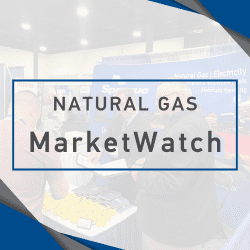Recap: The oil market ended Thursday’s session higher on optimism about a U.S. trade deal with the U.K. and planned trade talks with China. The market posted a low of $57.74 on the opening before it retraced most of Wednesday’s sharp losses. The crude market gradually traded higher throughout the session following the announcement of a trade deal between the U.S. and Britain and on the hopes of a breakthrough in upcoming trade talks between the U.S. and China. U.S. Treasury Secretary Scott Bessent will meet with China’s top economic official on Saturday in Switzerland for negotiations over a trade war that is disrupting the global economy. The market, which continued to hold resistance at its downward trendline at $60.29 as it rallied to high of $60.05 ahead of the close. The market was also supported as the U.S. once again announced sanctions a third Chinese independent oil refinery and port terminal operators in China for purchases of Iranian oil. The June WTI contract settled up $1.82 at $59.52 and the July Brent contract settled up $1.72 at $62.84. Meanwhile, the product markets ended the session higher, with the heating oil market settling up 6.34 cents at $2.04 and the RB market settling up 5.76 cents at $2.0854.
Technical Analysis: The oil market on Friday will remain well supported ahead of the looming trades talks between the U.S. and China on Saturday. The market will also trend higher amid the news of further sanctions imposed on Iran’s oil exports. The oil market is seen finding resistance at $$60.05, $60.26, $60.43, $61.22 and $62.07. Meanwhile, support is seen at its low of $57.74, $57.03, $55.30 and $54.67.
Fundamental News: U.S. President Donald Trump and British Prime Minister Keir Starmer announced a “breakthrough deal” on trade that leaves in place a 10% tariff on goods imported from the UK while Britain agreed to lower its tariffs to 1.8% from 5.1% and provide greater access to U.S. goods. Britain’s car industry will see U.S. tariffs immediately cut to 10% from 27.5%, while levies on steel and aluminum will fall to zero. President Trump said the U.S.-UK trade deal will create an aluminum and steel trading zone and secure the pharmaceutical supply chain, although he said some of the details “are being written up.”
U.S. President Donald Trump’s administration imposed sanctions on a third Chinese independent or “teapot” oil refinery and port terminal operators in China for purchases of Iranian oil. The U.S. Treasury designated the Hebei Xinhai Chemical Group refinery and three companies for operating a terminal at Dongying Port in Shandong Province.
Sources said recent U.S. sanctions on two small Chinese refiners for buying Iranian oil have created difficulties receiving crude and led them to sell product under other names, evidence of the disruption that Washington’s increased pressure is inflicting on Tehran’s largest oil buyer.
According to a Reuters survey, OPEC oil output fell in April despite a scheduled output increase taking effect, led by a cut in Venezuelan supply on renewed U.S. attempts to cut the flows and smaller drops in Iraq and Libya. The survey showed that OPEC produced 26.60 million bpd in April, down 30,000 bpd from March’s total, with cuts by some producers offsetting higher Iranian supply. The reduction comes despite OPEC+ beginning in April to unwind its most recent layer of output cuts.
U.S. President Donald Trump renewed his criticism on Thursday of Federal Reserve Chairman Jerome Powell, complaining that the Fed is refusing to lower interest rates. He said cutting interest rates would be “like jet fuel” for the economy “but he doesn’t want to do it.”
Early Market Call – as of 8:45 AM EDT
WTI – Jun $61.14, up 86 cents
RBOB – Jun $2.1175, up 2.11 cents
HO – Jun $2.0768, up 1.95 cents









